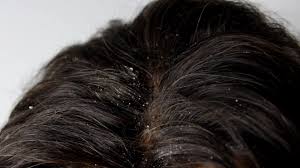dandruff
英 [ˈdæn.drʌf]
美 [ˈdæn.drəf]
- n. 头皮屑
星级词汇:

记忆方法
记忆“dandruff”可以通过形象联想的方法。想象“dandruff”就像“dancing(舞蹈)”的“ruff(长毛)”一样,在头皮上跳舞,形成了头皮屑的情景。这种方法将抽象的词义与具体的画面联系起来,有助于记忆。
以上内容由AI生成, 仅供参考和借鉴
中文词源
dandruff 头皮屑
词源不详。
英语词源
- dandruff
-
dandruff: [16] The word dandruff (or dandriff, as it commonly used to be) first appears, out of the blue, in the mid 16th century, with no known relatives. Its first element, dand-, remains utterly obscure, but the second part may have been borrowed from Old Norse hrufa or Middle Low German rōve, both meaning ‘scab’ (Middle English had a word roufe ‘scab, scurf’, and modern Dutch has roof).
- dandruff (n.)
- 1540s, first element obscure, second element is Northumbrian or East Anglian dialectal huff, hurf "scab," from Old Norse hrufa, from Proto-Germanic *hreufaz, source of Old English hreofla "leper."
权威例句
- 1. He has very bad dandruff.
- 他头屑很多。
- 2. Every winter he has a problem with dandruff in his hair.
- 每年冬天头皮屑都困扰着他.
- 3. Can you wash my hair with that dandruff control shampoo, please?
- 请用那种去头屑洗发膏给我洗头发, 好吗?
- 4. Yes. Do you have any dandruff?
- 要.有没有去屑洗发膏?
- 5. Miss, your hair has a lot of dandruff.
- 小姐, 你的头发有很多头屑.